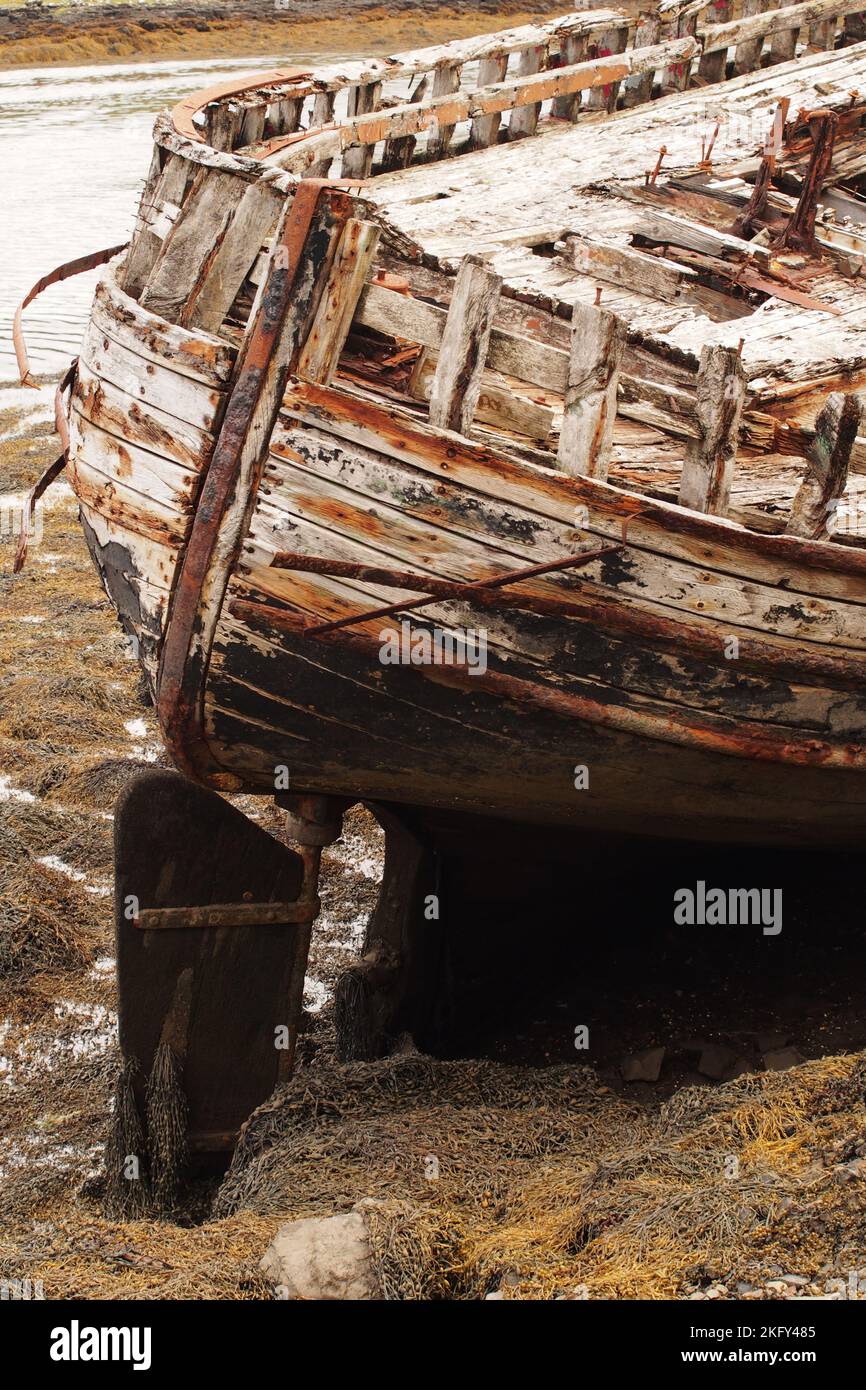Wrecked Pickup Trucks For Sale: Unlocking Value from Damaged Goods pickup.truckstrend.com
The rumble of a powerful engine, the utility of a spacious bed, and the undeniable presence on the road – pickup trucks hold a special place in the hearts of many. But what happens when these workhorses suffer the indignity of a collision, a flood, or mechanical failure? They often end up in a category that, for the savvy buyer, represents a unique opportunity: "Wrecked Pickup Trucks For Sale." Far from being mere scrap, these damaged vehicles can be goldmines for parts, canvases for ambitious restoration projects, or even a pathway to an affordable, road-ready truck for those with the right skills and vision. This comprehensive guide will delve into the world of wrecked pickup trucks, exploring why they appeal, where to find them, how to assess their value, and the crucial considerations for turning a damaged dream into a rewarding reality.
Why Buy a Wrecked Pickup Truck? The Appeal of Opportunity
Wrecked Pickup Trucks For Sale: Unlocking Value from Damaged Goods
The decision to purchase a wrecked pickup truck is rarely driven by impulse. Instead, it’s a strategic move often motivated by one of several compelling factors:
- Significant Cost Savings: This is perhaps the most immediate draw. A truck with a salvage title or significant damage can be acquired for a fraction of the cost of its undamaged counterpart. This price difference creates considerable financial headroom for repairs, parts, or even profit if the intention is to rebuild and resell.
- Parts Harvesting: For mechanics, auto enthusiasts, or even everyday truck owners, a wrecked truck can be an invaluable source of affordable, original equipment manufacturer (OEM) parts. Engines, transmissions, body panels, interiors, and countless smaller components can be salvaged and used for repairs on other vehicles, sold individually, or kept as spares. This is often far more cost-effective than buying new parts from dealerships.
- Project Vehicle & Rebuild Potential: For the skilled DIY enthusiast or professional mechanic, a wrecked truck represents a blank slate for a rewarding restoration project. Whether it’s a complete frame-off rebuild, an engine swap, or bodywork repair, the process can be deeply satisfying, offering a chance to learn, hone skills, and create a custom vehicle tailored to specific needs.
- Learning Opportunity: Working on a damaged vehicle provides hands-on experience that textbooks can’t replicate. It’s an excellent way for aspiring mechanics or hobbyists to understand automotive systems, diagnostics, and repair techniques without the pressure of working on a primary vehicle.
- Profit Potential: With the right expertise and a keen eye for value, buying a wrecked truck can be a profitable venture. This can involve parting out the vehicle and selling components individually, or meticulously rebuilding the truck and selling it for a substantial profit, often after obtaining a rebuilt title.
- Unique Customization: A damaged truck can serve as the perfect starting point for a highly customized build. Since the vehicle already requires work, there’s less hesitation to modify or upgrade components to create a truly unique off-road machine, show truck, or workhorse.

Types of Damage & Categories of Wrecked Trucks
Understanding the nature and extent of the damage is paramount when considering a wrecked truck. The type of damage often dictates the repair complexity, cost, and ultimately, the vehicle’s potential value.
- Minor Cosmetic Damage: This typically involves dents, scratches, scuffed paint, or minor bumper damage that doesn’t affect structural integrity or mechanical function. These trucks are often the easiest and most cost-effective to repair.
- Moderate Mechanical Damage: The engine might be seized, the transmission faulty, or the suspension compromised. While these issues require significant mechanical expertise and parts, the body and interior might be largely intact, making them good candidates for engine swaps or drivetrain overhauls.
- Collision Damage (Front, Rear, Side Impact): This is the most common category. Damage can range from light fender benders to severe structural deformation. Front-end collisions often affect the engine, radiator, and steering, while side impacts can damage doors, pillars, and axles. Assessing frame damage is crucial here, as it can be costly and complex to repair.
- Flood Damage: Water damage is notoriously insidious. It can lead to widespread electrical failures, rust in hidden components, mold, and long-term reliability issues even after seemingly thorough cleaning. Unless the truck was submerged in fresh water for a very short period, these are generally high-risk purchases.
- Fire Damage: Similar to flood damage, fire can compromise wiring, melt plastics, and weaken structural components. The extent of the fire dictates the severity, but even localized fires can cause extensive hidden damage and leave a pervasive odor.
- Vandalism/Theft Recovery: These trucks might have damaged interiors, cut wires, or missing components. While often less structurally compromised, the repair can involve extensive electrical work and sourcing numerous small parts.


Beyond the damage type, understanding the vehicle’s title status is critical:
- Salvage Issued when an insurance company declares a vehicle a "total loss" because the cost of repairs exceeds a certain percentage (e.g., 70-80%) of its market value. A salvage-titled vehicle cannot be legally driven on public roads until it’s repaired and inspected.
- Rebuilt/Reconstructed Once a salvage-titled vehicle has been repaired and inspected by the state to ensure it’s roadworthy and meets safety standards, it’s issued a rebuilt or reconstructed title. These vehicles can be registered and driven, though their resale value is typically lower than clean-titled vehicles.
- Clear Indicates no prior damage history or total loss declarations. While rare for "wrecked" vehicles, some minor damage might not have triggered a salvage declaration, offering a potentially less risky purchase.
Where to Find Wrecked Pickup Trucks for Sale
The marketplace for wrecked vehicles is diverse, offering various avenues for buyers depending on their budget, risk tolerance, and desired level of involvement.
- Online Auto Auction Sites:
- Copart and IAAI (Insurance Auto Auctions): These are the two giants in the salvaged vehicle industry. They primarily deal with vehicles from insurance companies, rental fleets, and financial institutions. You’ll find a vast selection, detailed photos, and often condition reports. Bidding requires registration and sometimes a broker’s license for individuals.
- eBay Motors: Offers a mix of salvage, rebuilt, and damaged vehicles from both individuals and dealers. It provides a more accessible platform for direct communication with sellers.
- Local Salvage Yards/Junk Yards: These businesses specialize in dismantling vehicles for parts, but often sell complete wrecked vehicles as-is. Prices can be negotiable, and you might be able to inspect the vehicle in person before buying.
- Specialized Auto Parts Dealers/Recyclers: Similar to salvage yards, but sometimes with a more organized inventory and focus on selling whole vehicles suitable for rebuilding.
- Online Marketplaces:
- Craigslist and Facebook Marketplace: Excellent for finding local listings from individuals or small businesses. Prices are often negotiable, but buyer beware – thorough inspection is crucial, as vehicles are sold "as-is" with limited recourse.
- Direct from Insurance Companies: While less common for direct public sales, some insurance companies might auction off vehicles directly or use their preferred auction partners.
- Tow Yards/Impound Lots: Unclaimed vehicles from accidents or impoundments are sometimes auctioned off by the city or lot operator. Research local government auctions or impound lot policies.
The Buying Process: A Step-by-Step Guide
Purchasing a wrecked pickup truck requires diligence and a methodical approach to mitigate risks and maximize success.
- Define Your Purpose: Are you buying for parts, a full rebuild, or a quick fix? Your goal will dictate the type of damage you can tolerate and the budget you set.
- Set a Realistic Budget: Beyond the purchase price, factor in transportation costs (towing a non-running vehicle can be expensive), parts, tools, potential professional labor, and re-titling fees. Add a contingency fund (20-30% of your initial estimate) for unforeseen issues.
- Research Thoroughly:
- VIN Check: Always run a comprehensive VIN check (e.g., CarFax, AutoCheck) to uncover the vehicle’s full history, including accident reports, odometer discrepancies, prior salvage titles, and service records.
- Damage Reports & Photos: On auction sites, scrutinize every photo and read all available damage reports. Look for hidden damage indicators like warped panels, rust where there shouldn’t be, or fluid leaks.
- Understand Title Status: Confirm whether the vehicle has a salvage, clear, or rebuilt title. Know what is required in your state to re-title a salvage vehicle.
- Inspect the Vehicle (If Possible): This is the most crucial step. If buying from a local yard, go in person. If buying from an auction, consider hiring a third-party inspection service that specializes in salvage vehicles. They can identify hidden structural damage, check fluids, and provide a professional assessment.
- Look for frame damage, signs of water or fire damage, engine integrity (if it turns over), and electrical system issues.
- Bring a flashlight, a magnet (to detect body filler), and a knowledgeable friend or mechanic.
- Understand Documentation & Legalities: Ensure all necessary paperwork is available for transfer of ownership. Be aware of your state’s specific requirements for obtaining a rebuilt title after repairs. This often involves inspections, receipts for parts, and specific forms.
- Bidding/Negotiating Strategies:
- Auction: Set a maximum bid and stick to it. Don’t get caught in a bidding war. Understand auction fees and buyer premiums.
- Private Sale/Yard: Be prepared to negotiate. Highlight any perceived flaws or potential repair costs to justify a lower offer.
- Arrange Transport: Most wrecked trucks are not drivable. Plan for towing or flatbed transport immediately after purchase. Factor this cost into your budget.
- Post-Purchase Considerations: Have a designated workspace, the necessary tools, and a clear plan for repair or dismantling.
Important Considerations & Potential Challenges
While the allure of a cheap truck is strong, buying wrecked vehicles comes with significant challenges:
- Hidden Damage: This is the biggest risk. What appears to be minor cosmetic damage could hide a bent frame, internal engine damage, or widespread electrical issues from a seemingly small flood.
- Underestimated Repair Costs: Buyers frequently underestimate the cost of parts, especially for newer or less common models. Labor costs, if you’re not doing the work yourself, can quickly exceed the value of the truck.
- Time Commitment: Rebuilding a wrecked truck is a major undertaking that can consume hundreds of hours. It requires patience, persistence, and often, problem-solving skills.
- Required Skills & Tools: Do you have the mechanical aptitude, bodywork skills, and specialized tools (e.g., welders, diagnostic scanners, frame straighteners) necessary for the repairs?
- Legalities and Re-titling: The process of converting a salvage title to a rebuilt title varies by state and can be complex, involving multiple inspections and paperwork. Failing to meet these requirements means you’ll own a truck you can’t legally drive.
- Resale Value: Even a perfectly repaired and re-titled truck will typically have a lower resale value than a comparable vehicle with a clean title. Disclosure of the salvage history is usually required.
- Transportation Logistics: Moving a non-running, potentially unsafe vehicle can be challenging and costly.
- Safety Risks: Working on damaged vehicles can be hazardous. Ensure you have proper safety gear and understand the risks involved in lifting, cutting, and handling heavy components.
Tips for a Successful Purchase
- Bring an Expert: If you’re not a seasoned mechanic or body shop professional, bring one with you for any in-person inspection. Their eye for detail can save you thousands.
- Verify VIN and History: Never skip a comprehensive VIN check. It’s your primary defense against hidden issues and misrepresented vehicles.
- Calculate Costs Before Buying: Get quotes for major parts (engine, transmission, frame sections) and estimate labor hours before committing to a purchase. Factor in paint, tires, and miscellaneous expenses.
- Be Patient: Don’t rush into a purchase. The market for wrecked trucks is vast, and the right deal will come along.
- Don’t Be Afraid to Walk Away: If the numbers don’t add up, the damage is worse than expected, or something feels off, walk away. There will always be another truck.
- Know Your Limits: Be realistic about your skills, time, and budget. Don’t take on a project that’s beyond your capabilities.
- Consider the Long-Term Goal: Are you looking for a daily driver, a weekend toy, or a profit-generating project? Your objective should guide your purchase.
Table: Estimated Price Ranges for Wrecked Pickup Trucks
Please note: Prices are highly variable based on make, model, year, trim, mileage before damage, and specific damage severity. These are broad estimates.
| Damage Severity | Typical Makes/Models | Estimated Price Range (USD) | Common Source | Notes |
|---|---|---|---|---|
| Minor Cosmetic | Ford F-150, Chevy Silverado, Ram 1500 (2-5 years old) | $2,000 – $7,000 | Auctions, Private Sale | Dents, scratches, bumper covers. Usually drivable. Best for DIY cosmetic repair or light body shop work. |
| Moderate Mechanical | Toyota Tacoma, Nissan Frontier (5-10 years old) | $1,500 – $6,000 | Auctions, Salvage Yards | Engine issues, transmission problems, suspension damage. Body often intact. Requires skilled mechanical repair, possibly engine/trans swap. |
| Moderate Collision | GMC Sierra, Ford Ranger (3-8 years old) | $1,000 – $5,000 | Auctions | Significant body panel damage, potentially minor frame tweak. Airbags deployed. Repairable for skilled DIYers or body shops. |
| Severe Collision | Any popular full-size truck (newer models) | $500 – $3,000 | Auctions, Salvage Yards | Major structural damage, bent frame, multiple airbags deployed, drivetrain damage. Primarily for parts harvesting or expert-level frame-off restoration. |
| Flood Damage | Various makes/models (recent flood areas) | $300 – $2,500 | Auctions, Specialty Dealers | Electrical nightmares, rust, mold. High risk. Often sold "as-is, no guarantee." Primarily for parts, or for very specialized restoration if submerged in clean water for short duration. |
| Fire Damage | Any make/model (engine bay fire, interior fire) | $200 – $1,500 | Auctions, Salvage Yards | Significant wiring and component damage. Structural integrity concerns. Mostly for heavy salvageable parts (e.g., rear axle if fire was front-end). |
Frequently Asked Questions (FAQ)
Q1: Is it legal to buy a wrecked truck?
A1: Yes, it is perfectly legal to buy a wrecked truck. However, if it has a salvage title, it cannot be legally driven on public roads until it has been repaired and inspected by your state’s Department of Motor Vehicles (DMV) or equivalent agency, and then issued a "rebuilt" or "reconstructed" title.
Q2: Can I get a loan for a wrecked truck?
A2: It’s extremely difficult to get a traditional auto loan for a wrecked or salvage-titled vehicle. Most lenders will not finance a vehicle that isn’t roadworthy or has a salvage title due to the inherent risks and lower resale value. You’ll typically need to pay cash or secure a personal loan.
Q3: How do I know if a wrecked truck is worth fixing?
A3: Calculate the estimated cost of repairs (parts + labor if not DIY) and compare it to the market value of a comparable clean-title truck. If the total cost (purchase price + repairs) is significantly less than the clean-title value, it might be worth it. Always factor in potential hidden damage and the time commitment.
Q4: What’s the difference between a salvage title and a clean title?
A4: A clean title indicates the vehicle has no record of being declared a total loss by an insurance company. A salvage title is issued when an insurance company deems the repair cost too high (e.g., 70-80% of its value). A salvage-titled vehicle cannot be registered or driven until it’s repaired and re-inspected to obtain a rebuilt/reconstructed title.
Q5: Do I need special insurance for a rebuilt salvage truck?
A5: Yes, while you can get insurance, some companies may offer limited coverage (e.g., only liability, no comprehensive/collision) or charge higher premiums for rebuilt salvage vehicles due to their history and potentially lower market value. It’s crucial to inform your insurer about the vehicle’s rebuilt title status.
Q6: How much does it cost to transport a non-running truck?
A6: Transportation costs vary widely based on distance, vehicle size, and whether special equipment (winch, flatbed) is needed. Local towing can range from $75-$300, while cross-state transport could be $500-$1,500+. Always get a quote beforehand.
Q7: What tools will I need to repair a wrecked pickup truck?
A7: This depends on the damage. Basic repairs might only need hand tools, jacks, and stands. More extensive work could require specialized tools like welding equipment, body hammers and dollies, frame straightening equipment, engine hoists, diagnostic scanners, and full automotive shop equipment.
Conclusion
The world of wrecked pickup trucks for sale is not for the faint of heart, but for those with mechanical inclination, a keen eye for value, and a healthy dose of patience, it can be incredibly rewarding. Whether you’re looking for an affordable workhorse, a donor vehicle for parts, or a challenging restoration project, understanding the nuances of damage types, title statuses, and the purchasing process is paramount. While hidden dangers and unforeseen costs are ever-present risks, with thorough research, realistic expectations, and perhaps a little expert help, a wrecked pickup truck can be transformed from damaged goods into a valuable asset, proving that one person’s write-off is truly another’s treasure.


